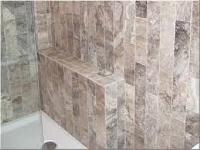
Travertine
Travertine is a white massive concretionary form of calcium carbonate, CaCO3 which is a resultant of deposition by springs (especially hot springs) or rivers. Travertine is usually hard and semicrystalline. It is often found in a beautifully coloured and banded as a result of the iron compounds presence or some other impurities. Generally travertine is less coarse-grained and takes a higher polish than stalactite or stalagmite whose chemical composition and origin are similar.
...more
Stone Tiles
Stone tiles are pieces of stones sliced out of boulders into a variety of sizes and shapes. Granite, marble, sandstone and limestone are most commonly used depending upon the general requirements of aesthetic appearance, resistance to abrasion and chemicals.
...more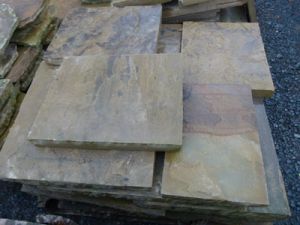
stone slabs
Stone slab is a thick, broad piece of stone which can be further used to create a large variety of artifacts and things of use in kitchen, living rooms and garden. In factory the stone slabs are the result of the transformation of raw materials exposed to extremely high temperatures, extremely high pressure and an exclusive process for surface randomness control.
...more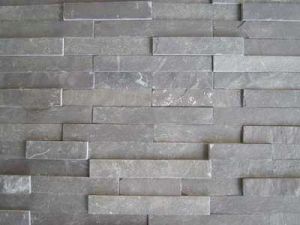
Slate
Slates are dense and fine grained rock. The colour of slates are generally gray, red, brown and green ranging from dark to light. It is produced by the compression of clays, shale, and various other rocks developing a characteristic cleavage consisting sericite and quartz with biotite, chlorite, and hematite as principal accessories.
...more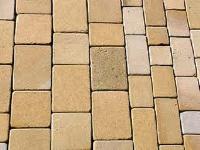
sandstone
Sandstone is a sedimentary rock group which is mostly made up of tiny grains of quartz. Most sandstone is formed in oceans, lakes and rivers where tiny bits of rock and dirt settle to the bottom. Year after year, these layers of sand get buried under tons of more sand and dirt until it is turned into solid rock. Sandstone can be found in many colors.
...more
Quartzite
The parent rock for quartzite is quartz-rich sandstone. As sandstone becomes deeply buried, rising temperature will fuse the quartz grains together forming the extremely hard and weather-resistant rock quartzite. Like marble, quartzite comes in many colors, but when pure it is light-colored. Quartzite tends to have a sugary appearance, and when broken the fractures cut through the sand grains, not around them as with a sandstone.
...more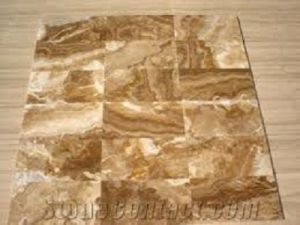
Onyx Stone
The name comes from the Greek word onyx which means nail of a finger or claw. Legend says that one day while Venus was sleeping ErosCupid cut her fingernails and left the clippings scattered on the ground. Because no part of a heavenly body can die, the gods turned them into stone which later became known as onyx. It is a member of the chalcedony family which also includes carnelian, agate, bloodstone, etc. Occuring naturally in a variety of colors, black onyx is polished to enhance appearance, a member of the quartz family.
...more
Mosaic Tiles
We are dealing best Mosaic Tiles supplying company.

Marble
Marble, formed from limestone with heat and pressure over years in the earth's crust. These pressure or forces cause the limestone to change in texture and makeup. The process is called recrystallization. Fossilized materials in the limestone, along with its original carbonate minerals, recrystallize and form large, coarse grains of calcite.
...more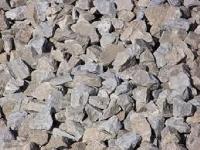
Lime Stone
Limestone is calcareous sedimentary rocks formed at the bottom of lakes and seas with the accumulation of shells, bones and other calcium rich goods. It is composed of calcite (CaCO3). The organic matter upon which it settles in lakes or seas, are preserved as fossils. Over thousands and millions of years, layer after layer is built up adding weight. The heat and pressure causes chemical reaction at the bottom and the sediments turn into solid stone, the limestone.
...more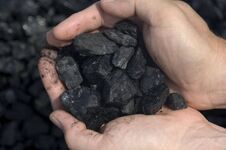
Industrial Minerals
There are many minerals which have industrial importance. They are widely used in different industries. Know more about these minerals, their chemical formula, physical and chemical properties, the way they are used in different industries, their effect on human bodies, the specifications and their availability.
...more
granite
Granite, from igneous rock, is a very hard, crystalline, and primarily composed of feldspar, quartz accompanied by one or more dark minerals. It is visibly homogeneous in texture.
...more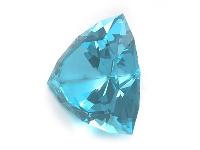
Aquamarine Stone
Being a variety of beryl it belongs to the same family as emerald. Its colour varies from an almost white pale blue to a slightly darker sky blue, this latter being the most prized of all. There are also some greenish blue specimens which potential buyers would be wise to avoid. When investing in aquamarine, choose a stone that is pure, brilliant and as dark as possible. Be careful not to confuse it with blue topaz, a far less valuable mineral. Generally, aquamarine is faceted, except for the translucent or milky specimens which are better cut en cabochon. This cut is popular today with jewelers for the creation of reasonably-priced parures. Aquamarine comes from Brazil, Madagascar, Russia and the USA. Specimens from China and Colombia tend to be of a yellowish tint.
...more
Ametrine Stone
Ametrine is a mixture of amethyst and citrine. Partially it occurs to be purple and partially orange-yellow. It is typically given a rectangular shape with a 50-50 pairing of amethyst and citrine. So, with ametrine one can have the color of two gems for the price of only one. Ametrine is very popular among the artistic cutters and carvers. They play with its colors, creating landscapes in the stone. Sometimes, the artists give a checkerboard pattern to the top, which increases the light reflection. Ametrine is durable and is suited for a variety of jewelry uses. The sizes and shapes are also available in abundance and the color contrast is mainly pronounced in sizes over seven carats. Taking into account of its availability from a single mine, it is not so expensive.
...more
Amethyst Stone
This is a variety of quartz coloured by traces of manganese, titanium and iron. It is of a pale lilac, mauve or bluish violet colour. Very popular in the past, its current value is stable as new mines have recently been discovered. Moreover, its worth has been further undermined over recent years by the flood of tasteless objects made in Brazil. The best investment is an amethyst of average size weighing between 4 and 8 carats, as dark as possible, but not so much so that the light is prevented from reflecting, and with a deep lustre. Amethyst has a very wide provenance, but the finest coloured specimens come from Brazil and the Urals. It is also mined in Madagascar, Ceylon, India and Australia.
...more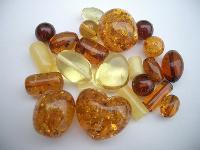
Amber Stone
This is not strictly a gemstone but a fossilized form of resin derived from various coniferous trees. It is found in many colours and may be both translucent or opaque. The rarest specimens are those enclosing insects of extinct species and leaves trapped in the sticky exudations of the tree. Amber occurs practically everywhere in the world, but not in large quantities. It is most abundant, however, in the Baltic regions of Northern Europe. Unlike most other stones, its impurities actually increase its value, but be suspicious of so-called "pressed" or "compressed" amber. It is generally cut en cabochon or left in its original shape and simply polished. Ever since ancient times, it has been used for making beads for necklaces and bracelets. It is widely used in Muslim countries for the famous rosaries.
...more
amazonite stone
Amazonite, also known as 'Amazone stone,' is a light, aqua-green stone with white mottled flecks. The name, Amazonite, has been taken from the Amazon River, where formerly certain green stones were obtained, but it is found in Brazil. The origin of the stone is the New England States and Colorado. The composition is basically of potassium feldspar, and it is a green variety of microline.
...more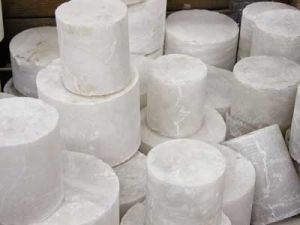
Alabaster Stone
This substance is sulphate of lime or gypsum of a white or delicately tinted colour. It is one of the softest minerals known to nature and is therefore used as an ornamental stone in sculpture, though only for internal work as it weathers easily. It is especially popular in Italy, its country of origin (Volterra, Tuscany). It is very porous and easy to colour, but too fragile to be a worth- while investment.
...more
Agate Stone
This is a semi-pellucid variety of quartz. The colours are arraigned in strips or bands or blended in clouds and classified accordingly as moss, ribbon, dendrite, etc. The stone, widely distributed but not very popular, is generally brown. When used for ornamental purposes it has usually been dyed artificially as the porous nature of this mineral allows it to absorb material from solution. Brownish- orange agate is known as cornelian, the green variety chrysoprase, the blue variety chalcedony and the brownish-red variety carnelian. Black agate is onyx. Agate is used for inexpensive jewelry, ornaments and even ash- trays and precision instruments. It is found mainly in India, Brazil, Madagascar, China, Russia and Australia.
...more
Alexandrite Stone
It is a very attractive stone, but rare and therefore very costly, and only the top quality is worth buying. It is, however, an excellent investment because it is much prized by jewelers and collectors. Pure alexandrite is always faceted, or cut en cabochon if flaws are present (in this case be careful not to confuse it with other "chameleon" chrysoberyls or labradorite). Its value is on a par with the four precious stones and when well set is a match for even the finest diamond. The best specimens come from Russia, but it is also found in Ceylon, Burma, Brazil, Madagascar and the USA.
...moreBe first to Rate
Rate ThisOpening Hours